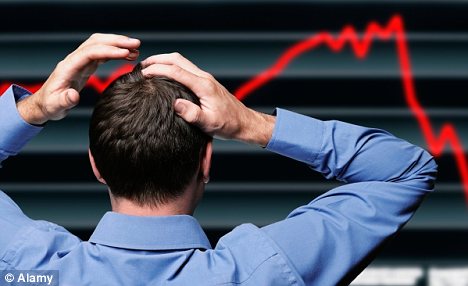The hardest thing about trading is not the math, the method, or the stock picking. It is dealing with the emotions that arise with trading itself along with the ego’s need to be right. From the stress of entering a trade, to the fear of losing the open paper profits that you are holding in a winning trade, how you deal with those emotions will determine your success more than anything else after you have a quantified trading system with an edge.
To manage your emotions first you must trade a system and method you truly believe will be a winner in the long term. This confidence arises from back-testing and historical chart studies along with faith in yourself to execute it with discipline.
You must understand that every trade is not a winner and not blame yourself for equity drawdowns if you are trading with discipline.
Do not bet your entire account on any one trade, in fact position sizing correctly and risking only 1% of your total capital to a loss on any one trade if your stop is triggered is the best thing you can do for your stress levels and risk of ruin odds. I am referring to the maximum loss here not position sizing.
With that in place here are some examples of emotional equations to better understand why you feel certain emotions strongly in your trading:
Despair is caused when you’re losing money and your trading is not improving.
Don’t despair, look at your losses as part of doing business and as paying tuition fees to the markets. Focus on executing your system with discipline not the results. Hope will arise as faith in yourself grows as a disciplined trader.
Disappointment happens when expectations were far greater than current reality.
Enter trading with realistic expectations. What do you realistically expect your annual returns on capital do be based on similar traders that use your methodology? What can you realistically estimate will be your drawdown based on your win rate and risk/reward ratio? Trading a robust system over the long term with discipline will lead to profitability but your path can involve peaks and valleys. Understanding the math of what to expect will help curve disappointment.
Regret is caused by the disappointment in a loss that was caused by a lack of discipline.
If you followed your trading plan and lost money because the market did not move in your direction that is just part of the business, but if you went off your plan and traded based on your feelings and ego then you should feel regret and stop being undisciplined. You should ensure on every entry and with every position size that you have no regrets regardless of the trades outcome, your job is to execute your trading system with consistency and discipline.
You will enjoy your trading when you are having winning trades and no fear of ruin because you are trading with the right position size.
Trading is much more enjoyable when you are risking 1% of your capital in the hopes of making 3% on your capital with a zero chance of ruin. It is not enjoyable when you are putting a huge percentage of your capital on the line in each trade and are only a few bad trades away from your account going to zero.
Wisdom comes from the experience of years of successful trading
To get good at trading you must trade real money. Back-testing and chart reading does not make you a trader only putting on the risk and managing the stress of real trades can. Wisdom comes from putting real money on the line for years and proving to yourself that you can come out a winner in the long term.
Faith in your system comes from a belief in its profitability through back testing and then the experience of winning with it for years.
While you must hold the opinion of whether any overall trading method is a winner or loser it is different for an individual trade using that method. Each trade can be random in nature, but the principles of a profitable trading method will play out over a large enough sample size to rise above noise and capture trends. A lot of emotional trading can be overcome when you do not have doubts about your method. When you hold an almost religious fervor over believing in your method, system, risk management, and your own discipline you will overcome many of the emotional problems that arise with other traders in the heat of action.
